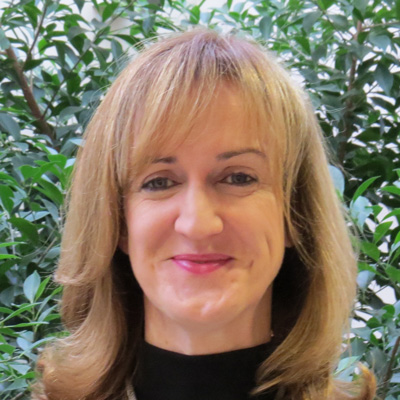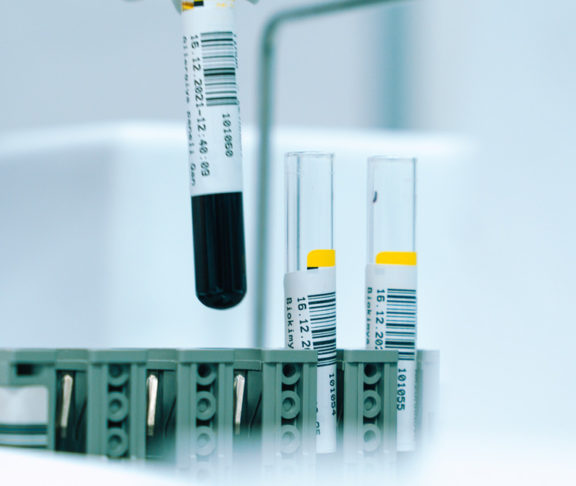
Professor Lorraine O’Driscoll
Professor of Pharmacology and Biomedicine, Research Lead of the Trinity St. James’s Cancer Institute, Vice-President of the Royal Irish Academy
All-Ireland €4 million research is testing whether minimally invasive blood tests may complement — or even replace — surgical biopsies for cancer diagnosis and treatment.
The All-Ireland Cancer Liquid Biopsies Consortium (CLuB), an emerging hub of excellence, was set up last autumn, supported by the Shared Island Fund and overseen by the Higher Education Authority. It is a groundbreaking collaboration building on internationally recognised leadership in cancer research at Trinity College Dublin, Queen’s University Belfast and the University of Galway.
All-Ireland cancer research promoting better testing combinations
Lorraine O’Driscoll, Professor of Pharmacology and Biomedicine at Trinity College Dublin and Research Director of Trinity St James Cancer Institute, is heading the study. She says: “We are bringing together the necessary expertise across the whole of Ireland to the study. Within four years we aim to have identified new, better combinations of testing by studying several different entities in the same blood samples — potentially coming up with new diagnostics and helping to predict treatment response.”
“We are hoping to develop some industry partnerships as well because — while universities and hospitals can do excellent research — there are companies that are experts at creating testing kits.”
We are studying what has been released
from the tumour into the blood sample.
Researching efficacy of blood testing
“We are studying what has been released from the tumour into the blood sample,” explains Professor O’Driscoll. “For example, you diagnose that the patient has cancer and hopefully use the information to help select the optimal treatment.”
Tissue biopsies, aside from being invasive, are much more expensive than blood tests. They also have limitations. For example, if a tumour has been sampled, it’s only sampling parts of the tumour. Tumours are heterogeneous — in other words, every cell of the tumour is not the same. Even if more samples are taken, they are not necessarily representative of the whole tumour. We are looking to prove that what’s released from all those cells will be found in the blood.”
She stresses: “We are not claiming that tissue sampling would never be needed but that blood testing could, in some cases, replace tissue sampling — and in other cases, complement it.”
Experts listening to patient advice for better outcomes
This multidisciplinary research is looking at thousands of patient samples. “CLuB brings together recognised international experts in their particular areas that have never previously had a mechanism to work together,” explains Professor O’Driscoll.
Research is currently on lung, ovarian and breast cancer, with plans to expand to other cancer types. “Patients are advising on our research all of the time. Our main focus is to achieve better care and outcomes for cancer patients,” she concludes.




